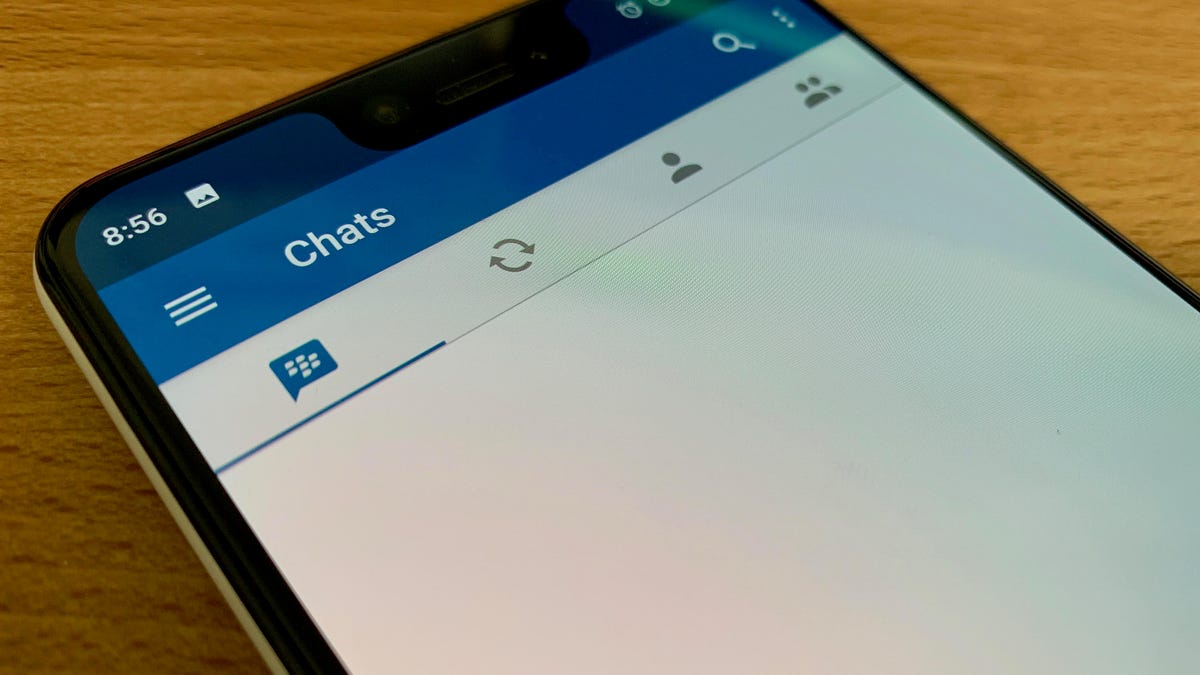BlackBerry Messenger is dead: Use these apps instead
BBM will be missed by many.

It's official: BlackBerry Messenger is no more. The beloved messaging platform was officially shut down on May 31, following an announcement earlier this year. BBM was one of the first messaging apps to use read receipts and typing indicators, but it long held up security as a key selling point.
While you may be feeling nostalgic about the demise of BBM, not all is lost. Because of BBM, competing messaging platforms like WhatsApp or iMessage -- and a handful of others -- exist.
With the end of BBM upon us, you'll need to figure which messaging platform will replace it. Below we round up some of the best messaging services currently available.
If security is a priority, avoid Facebook Messenger and WhatsApp
Absent from the list are Facebook Messenger and WhatsApp. Both are capable messaging apps that you surely could use. However, a recent report revealed Facebook CEO Mark Zuckerberg wants to make it possible for users of WhatsApp, Facebook Messenger and Instagram to send messages to each other, despite the messaging services currently being separate entities.
On the surface, it sounds like a good idea. But when you start looking at what the move could mean in terms of user privacy, it can leave you with an unsettling feeling. Especially when you consider that WhatsApp messages are currently encrypted, while Messenger and Instagram messages are not. Exactly how Facebook will blend the services and what level of protection it will provide are unknown.
BBMe (Download for Android | iPhone)
There is a silver lining for BBM die-hards: BlackBerry Messenger still exists, albeit in its Enterprise form. After the news broke that BBM for consumers would be shut down, BlackBerry announced that its enterprise version of BBM is now open for personal use.
There are Android, iOS , MacOS and Windows versions of BBM Enterprise. The subscription messaging service will be free to consumers for the first year, after which there's a six-month subscription fee of $2.49.
BBMe includes all of the familiar BBM features -- voice and video calls, read receipts and file sharing, to name a few -- that users have known and loved for all these years, plus end-to-end encryption.
You'll need to install and subscribe to the service via one of the mobile apps before you can set up the desktop apps.
Telegram (Download for Android | iPhone)
Telegram running on an iPhone XS Max.
Telegram offers encrypted chats with self-destructing messages. The service works across multiple devices and platforms, including in a web browser should you not want to install an app on your computer. End-to-end encryption is an optional feature, called Secret Chats, that you have to enable for each conversation.
The service requires a phone number to sign up but does not share your number with contacts -- a handy feature for those trying to vet out potential Tinder matches.
Signal (Download for Android | iPhone)
Signal running on an iPhone XS Max.
Signal is a cross-platform messaging app that has made a name for itself thanks to its end-to-end encryption and has been endorsed by the likes of Edward Snowden for its security. You can get it an Android or iOS version of the app, as well as desktop apps for Mac, Windows and Debian-based Linux.
iMessage
iMessage does it all, really.
Android users, please put down your pitchforks. The truth is, Apple's iMessage platform is really well done and seamless to use... as long as you own an Apple product. And that's the rub. In order to get the most out of iMessage, not only do you need an Apple device, but the people you talk to need to use Apple devices (iOS or Mac).
If you trust Apple more than a third-party app developer, then iMessage is your answer. It provides end-to-end encryption, and with iMessage apps and FaceTime built in, you're still able to do all of the fun things competing messaging apps can do.
Originally published Feb. 15.

